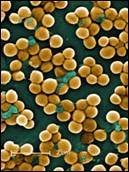We're always looking for new ways to add value to the science community. Sure, other sites may offer the usual boring job placement listings or forums on how to write effective grant proposals, but we all
know how to get jobs.
What not everyone knows is how to get a date.
So today we are unveiling our newest feature for the science community;
the Scientific Blogging Dating Service.
As more research is conducted on the development and spread of pandemic type II diabetes, there is more evidence than ever that diabetes is intricately linked to obesity, which is spreading in the US at an alarming rate.
To combat the struggle of managing type II diabetes, physicians have turned to unconventional methods to reduce fat and likewise combat diabetes symptoms. Obesity reduction was the theme of the 2009 UK Diabetes Professional Conference in Glasgow, and efforts to treat and reverse diabetes through bariatric surgery was one of the most controversial topics.
One of the largest health threats facing our society today is not some super-virus spread from birds, or a tropical parasite spread by mosquito. Instead, it is the increasing resistance of common bacteria to antibiotics and even severe antibacterial treatment. Antibiotics have allowed us some amount of freedom from harmful bacterial infections, diseases and death, but as our antibiotics become overused, and ineffective against infection, our freedom from disease is significantly limited.
If you are one of the many millions that suffer from unexplained abdominal cramps, bloating, constipation and diarrhea, you are not alone. According to the NIH, 1 in 5 Americans suffer from similar symptoms.
The cause? Physicians have placed all of the unexplained and irregular symptoms into the catch-all disorder
irritable bowel syndrome.
It seems that music has extraordinary magical powers. Famed for being able to tame wild beasts, set a romantic mood, keep you exercising for longer and make babies smarter, music has taken a multifaceted and complex role in our society. Our search for the panacea of our times may lie in your iPod.
It seems that cherries are the new ‘super food’ to strike a craze in the US. Citing the effects of cherries to slow aging due to antioxidants, they contain a class of free-radical fighting agents called anthocyanins, which are not just found in cherries.
In 2004, the Journal of Biomedicine and Biotechnology dedicated an entire volume to the subject of anthocyanins, which are found not only in cherries, but in blueberries, pomegranates, cranberries, sweet potatoes, Elderberries, and grapes. Various berry juices also contain the antioxidants like grape juice, wine and other extracts.
 H1N1 Vaccine: Examining Benefits Vs. Risk For Individuals
H1N1 Vaccine: Examining Benefits Vs. Risk For Individuals HIV Halted By Plants
HIV Halted By Plants Genetic Fitness - Biological Bias, Not Societal, Explains Promiscuous Men And Chaste Women
Genetic Fitness - Biological Bias, Not Societal, Explains Promiscuous Men And Chaste Women HIV Vaccine From Gene Therapy?
HIV Vaccine From Gene Therapy?











